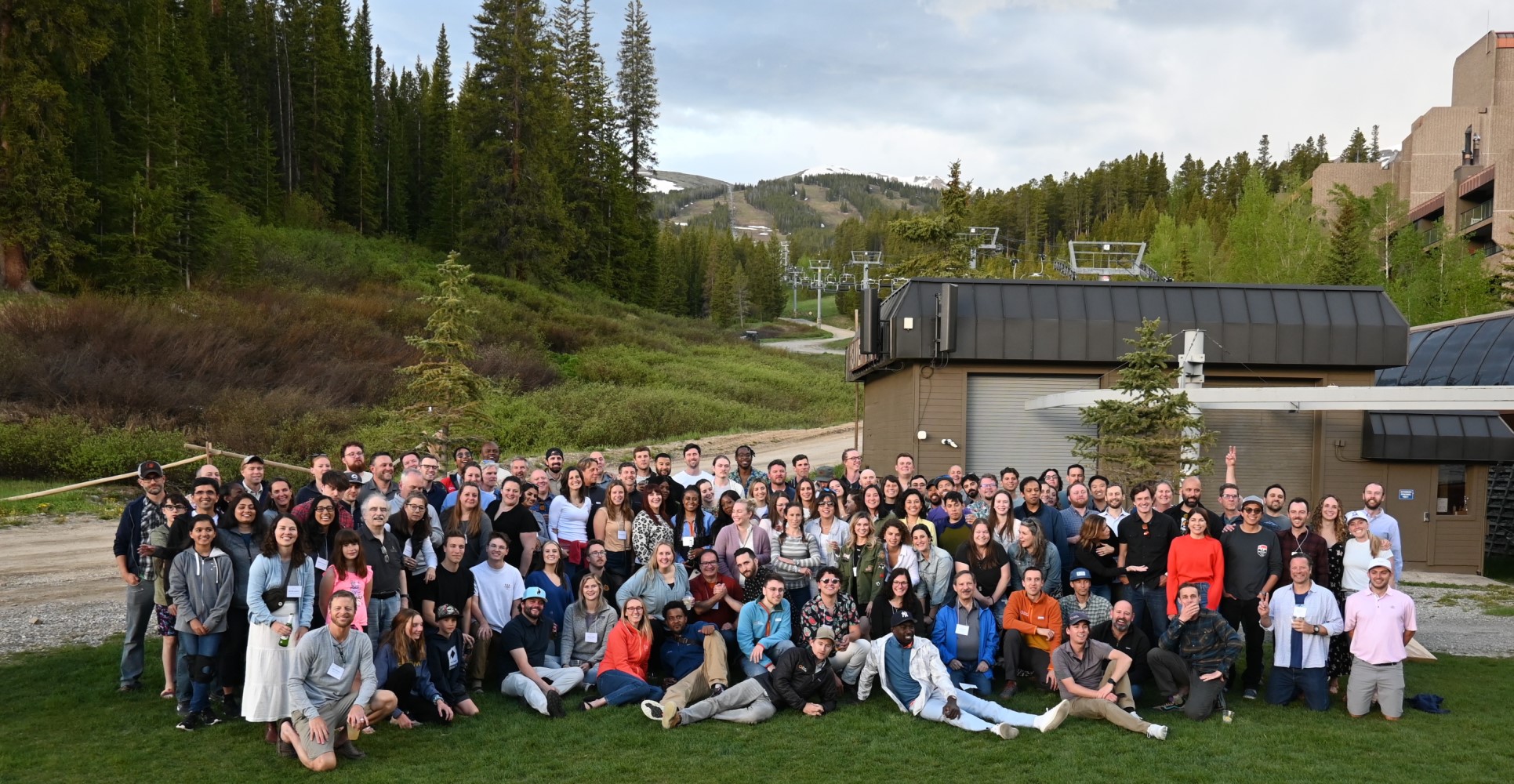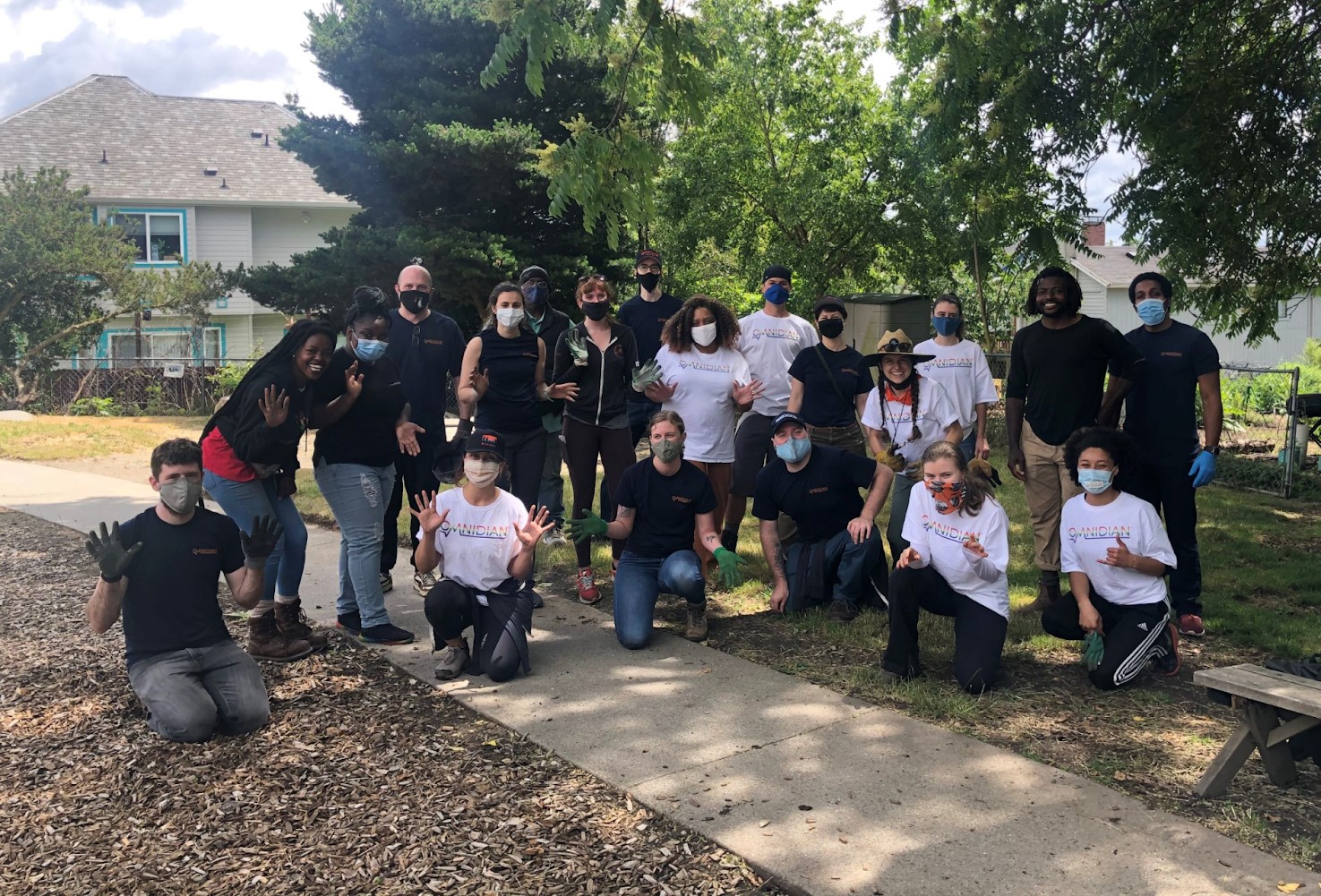Community solar is having its moment in the spotlight. The Solar Energy Industries Association notes that 6.5 GW of community solar have been installed in the U.S. through Q1 of 2024 alone. And overall, the industry is predicted to hit 14 GW in existing U.S. markets by 2028, with a projected 8% average annual growth rate.
Pivot Energy, one of the country’s leading renewable energy independent power producers, is at the forefront of this community solar movement. Pivot has over 380 community solar projects completed or in development that are estimated to offset over 1.8 megatons of CO2 annually.
Kelly Hadayia, Pivot’s Vice President of Revenue Operations, has witnessed much of this growth. Kelly’s seen what the power of solar can do – both literally and figuratively – for the surrounding community, and she believes Pivot is poised to make an even greater impact in the future.
From Different Beginnings
Founded in 2009, Pivot Energy originally started as a solar developer called Microgrid Energy in St. Louis, Missouri. Pivot’s Founder and Chief Strategist Rick Hunter moved the company to Colorado, where it emerged as a top developer during the early days of the state’s community solar boom in the 2010s.
Kelly explained that while Pivot became a big player in the community solar space, the company recently transitioned away from its “developer only” label to become a renewable energy independent power producer (IPP) so it could have a bigger impact within solar as a whole.
“That was the goal for the last couple of years: how do we bring our own projects online and what does that look like?” she explained. “We see everything through the lifecycle of project development and all the way through now.” Kelly said Pivot is also heavily involved in the community solar industry via groups like the Coalition for Community Solar Access and through Pivot’s own internal policy team that advocates for legislation at the state and federal levels.
Kelly said this change from developer to owner-operator was both the goal and catalyst for Pivot’s rapid growth as a company over the last few years, which had about 40 people when she joined in October 2020 and now boasts 170+ employees. Despite being new to the solar industry at that time, Kelly’s 15 years working at Harvard (among her other higher ed and edtech positions) helped her gain the marketing, sales, and business operations skills she uses at Pivot every day.
“I really focused on subscription-as-a-service, and so that parlayed nicely into community solar, which is how I got into the industry,” Kelly said. “There are a lot of aspects of Pivot Energy and solar that I absolutely love. I feel like I’m probably now a lifer in renewables.”

Culture at Its Core
One of the aspects that Kelly loves about Pivot is the company’s culture.
“Pivot is a place where you make deep connections with people because there’s a shared language, you’re working toward the same things,” Kelly explained. “People truly care not just about the work that we’re doing, but also about sustainability, and solar, and we’re a B Corp, and we give back to our community.”
It’s the B Corp Certification that makes Pivot a unique player in the solar space. This is part of the reason why the company teamed up with Omnidian, because the IPP shares our desire to be a transparent, accountable, and values-driven organization expected of Certified B Corp companies.
Because of this B Corp status, Kelly said Pivot has to be “thoughtful about how we go into core markets.” “We look at what kind of impact we can have: can we go into a space and be creative or innovative in how we serve constituents? Can we still have an economically viable project and serve the community?” Kelly said. “As a B Corp, we want to make sure we’re adhering to our company values and really thinking about the ESG side of things.”
Those company values are practiced internally, as well. For example, Kelly explained everyone at Pivot is encouraged to share embarrassing stories about themselves when they join the company, which helps foster connections and friendships. She also noted that all employees, no matter their tenure or position, are encouraged to have an opinion on how and why the company makes decisions.
Pivot is a place where you make deep connections with people because there’s a shared language, you’re working towards the same things.
– Kelly Hadayia, Pivot Energy
“That’s really powerful, because somebody can be at the organization for two weeks and go up to our CEO Tom Hunt and say, ‘Hey, I had this idea,’ and Tom will say, ‘Come sit down. Let’s have lunch.’ He wants that from people; he wants to hear those ideas. He’s constantly seeking to learn and grow, and putting that back into the culture and our values speaks to who we are and what makes us run.”
To retain this company culture, Pivot needed to be very intentional about scaling. Kelly explained that while Pivot may seem like a big company, “we still operate like a relatively small company” because they make strong connections across their teams despite their growth.
“We’ve learned the ‘secret sauce’ is people,” Kelly stated. “We bring on people who understand the business – who have done things the wrong way, have done things the right way – and who now look at how we can continue to be innovative and creative in this space and continue to drive it forward, not just through policy or legislation or thought leadership, but also how we can drive it forward in our business and our roles.”
Community Solar Pains
This business of community solar – much like the solar industry as a whole – brings with it lots of ups and downs (known across industry professionals as the “solarcoaster”). And despite seeing a lot of success in community solar, Pivot has experienced many of its challenges first-hand.
For starters, Kelly said hurdles like interconnection delays or supply chain issues can affect how quickly Pivot’s projects reach permission to operate (PTO) and profitability. Additionally, the demand for community solar keeps growing, which in theory is good news. But Kelly said that means Pivot has had to determine the best way to balance demand with delivery promises.
“Community solar is not a household name. Nationwide, people don’t know what it is,” Kelly explained. “When we try to educate, people say, ‘That’s too good to be true; you can’t just save money,’ but that is how it works. As an industry, we need to get better at creating an education program or component so that people really understand what this is.”
Then once someone signs up for community solar, how should they be managed as a subscriber? What about communication – is there a language barrier to consider? And how does a community solar provider handle billing? For example, Kelly said customers can be frustrated by the way their bill looks after they sign up for community solar, especially since a lot of markets are on a dual-payment system.
“You get your utility bill and then you get your bill for community solar, and by and large you’re still saving money each month, but it’s confusing,” she said. “Nobody wants to pay more things.”
Community solar is not a household name. Nationwide, people don’t know what it is. As an industry, we need to get better at creating an education program or component so that people really understand what this is.
– Kelly Hadayia, Pivot Energy
Hope for the Future
Despite these headwinds, Kelly is motivated to keep moving forward in her role in community solar for a variety of reasons, the primary one being the sustainability of the planet for her daughter Betty.
“It is our goal and our mission as humans, as good community members, as family/friends/parents – whatever role you play – to leave this earth a better place than when you came into it,” Kelly explained. “I want Betty to be able to say, ‘My mom did these really cool things and she made this a better place and I can live here longer because of the things my mom did.’”
Kelly noted that her team at Pivot jokingly calls her the “Positivity Pony,” even though she said she can often feel pessimistic. But she explained that “working in this industry, working with the people I work with, the friends I’ve made, and knowing what I want the future to hold for me, for my family, for Betty, for my friends’ kids” keeps her eyes on the prize.
“I try to look at that glass that’s half full, but how can I make that glass bigger, and fill that halfway, and even more?” she added. “I’m constantly looking for ways to fill my cup. It doesn’t mean that I’m always doing a great job, but I think we’re doing really cool things , and I love the people I work with.”
If she could use all that positivity and motivation to fix one thing in the solar industry, she said it would be amazing to be like Judy Garland in The Wizard of Oz and “just click my heels together” so she could make solar more accessible to everyone. She added that as a whole, the solar industry is only serving roughly 5-6% of American utility customers, but it could make a much bigger impact on a broader scale if industry professionals would “band together” to increase access to solar and renewable energy as a whole.
I try to look at that glass that’s half full… how can I make that glass bigger, fill that even more?
– Kelly Hadayia, Pivot Energy
“Even though we think about ourselves in the industry as competitors or other players, it’s a small industry, so I affectionately call it ‘coopetition’,” she explained. “John F. Kennedy said, ‘A rising tide lifts all boats.’ If we think about how to raise the tide to lift all those boats in the water, I think at the end of the day, we’re doing our job.”








